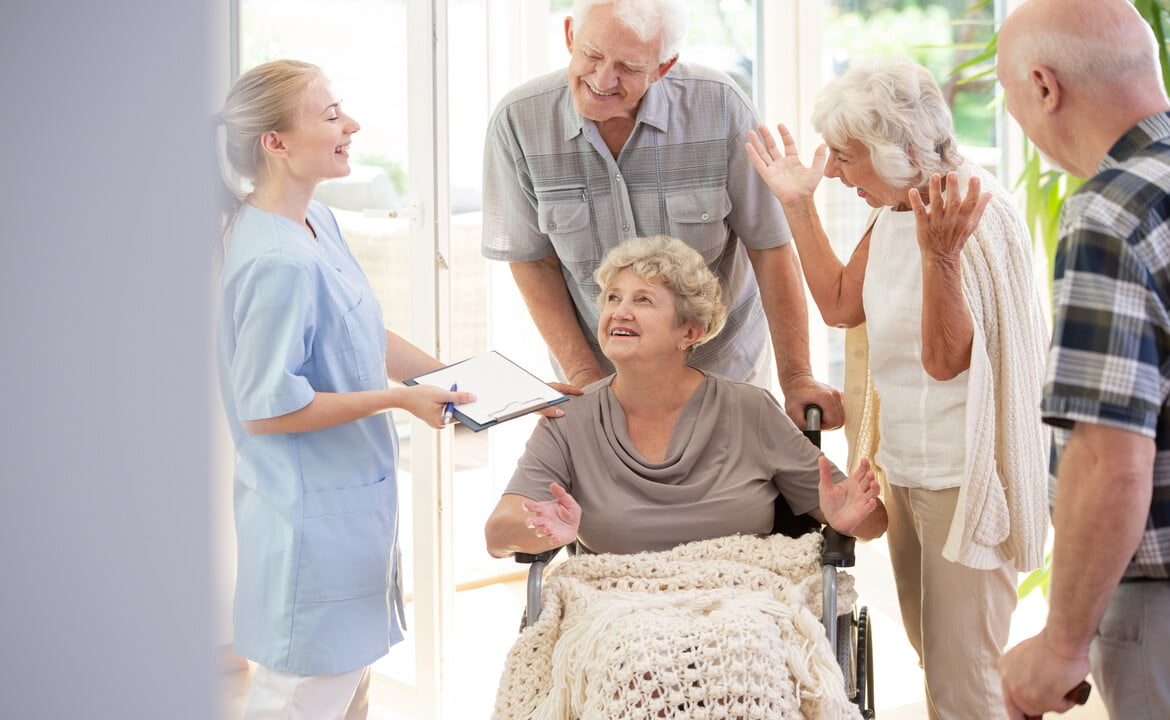This article covers senior medical supplies and medical alert and monitoring systems.
Elder Medical Supplies and Monitoring Alert Systems
Senior Medical Supplies
Medical supplies are those essential health items required by seniors for purposes of physical support and diagnostic care, such as blood glucose monitoring and other medical equipment listed below.
Medical Monitoring Alert Systems
Other senior healthcare supplies include medical monitoring and alert systems that remotely monitor the patient’s continuing medical status and alert the medical providers and the appropriate response team should a medical emergency arise.
Electronic monitoring has grown in its scope and level of sophistication over the past few years and includes monitoring:
- Patient Blood Pressure
- Patient Glucose Levels
- Patient Heart Rate
- Patient reveals symptoms via two-way talk
All of the above information is a valuable indicator for health professionals to determine the type of medical emergency response that might be required.
Medical Supplies
Medicare Part B covers medical equipment and supplies. To obtain these items, a doctor must order them for the senior, and they must be deemed medically necessary for the senior to maintain their independence.
Medicare will only cover the items if they’re obtained from an approved medical supply vendor. Patients can rent durable medical equipment such as wheelchairs from such supply vendors.
Medical Equipment Rental
Medicare will pay the rental cost for seniors who require the equipment temporarily. However, if it is more cost-effective, Medicare can elect to purchase the items outright for seniors.
Types of Medical Supplies and Equipment
- Blood glucose monitors
- Crutches
- Canes
- Wheelchairs
- Front-wheel walkers
- Four-wheel walkers
- Bedside commodes
- Suctioning Pumps
- Wound-Bandage supplies
- Hospital beds
- Infusion pumps
- Patient lifts
- Traction equipment
- Prosthesis, including diabetic shoes
- Arm braces, leg braces, neck & back braces
- Splints and casts
- Surgical dressings
Those fortunate enough to have private eldercare insurance will usually be provided with a complete listing of covered and non-covered items and should refer to the specific guidelines in their insurance company coverage list.
Elder Medical & Health Monitoring Systems
Elder Care Monitoring systems have grown more sophisticated in the past five years. Monitors can now collect various information such as video, physical movement, temperature, sleep patterns, etc.
The unpredictable nature of elder care, brought on by dementia and other cognitive disorders, makes safety monitoring systems an essential tool for caregivers.
Medical Alert Devices Save Lives
Medical alert devices can be critical to your loved one’s health and safety. Medical alert systems can be used at home or in different types of assisted living environments.
Some alert systems include emergency buttons or sensors to detect emergencies like fires or falls, which can alert emergency responders, dedicated caregivers, and family members.
Medical Alert Device Features Vary
Depending on price, some monitoring and alert systems come with smart wristbands, issue reminders on medication and appointments, track blood pressure, provide for two-way talk, fall detection, temperature, glucose monitoring, and off-site GPS monitoring.
Price of Monitoring Coverage
Most services provide round-the-clock coverage of emergencies and non-emergencies, 24 hours a day, seven days a week. Monthly monitor plans from $25 – $85/month, depending on the required features and level of monitoring services.
The cost of the device varies depending on the features of the equipment being used. Some medical equipment providers add the equipment cost to the monthly payments and may charge you an activation fee.
Some Medicare plans cover the price of a monitoring system, while others do not
Dementia – Elder Falls And Getting Lost
Falls can often turn into fatal injuries. In fact, according to many geriatric experts, falls are the number one cause of death due to injury in people over age 75.
This finding is particularly true with elders with Alzheimer’s, Parkinson’s, or any form of dementia, mainly because they are prone to falls due to being disoriented in their immediate physical environment.
It is often up to the elder’s family to ensure their loved one is safe by taking all reasonable precautions. These may include that your loved one has some monitoring technology on their person or nearby.
Whether your loved one is living with you, at their own home, or at a board and care does not matter. The safety system or environment is only guaranteed to make the environment safer.
Safety And Emergency Alert Devices Come In Many Forms
Senior monitors come in various forms. Most can be worn comfortably by the senior.
Bed, chair, and mat alarms are now available with remote and mobile receivers. These added layers of protection can provide the caregiver confidence that there is immediate access to communication should an emergency arise.
Getting Lost and GPS Systems
There are also GPS devices, emergency information wristbands, and two-way communication devices available at reasonable prices which add to the overall safety of your loved one.
More Medical Supply Providers Are Offering Complete Solutions
Given the rapid rise in medical technology combined with an increasing demand for more comprehensive solutions to eldercare needs, including their desire to maintain the highest level of independence possible, medical supply vendors are offering remote elder monitoring and alert systems. If not, the elder or their representative will shop elsewhere for their health products online
Locate A Medical Supply and Monitoring Equipment Provider
For more information, consult an online Medical Supply & Monitoring Alert System Provider.











